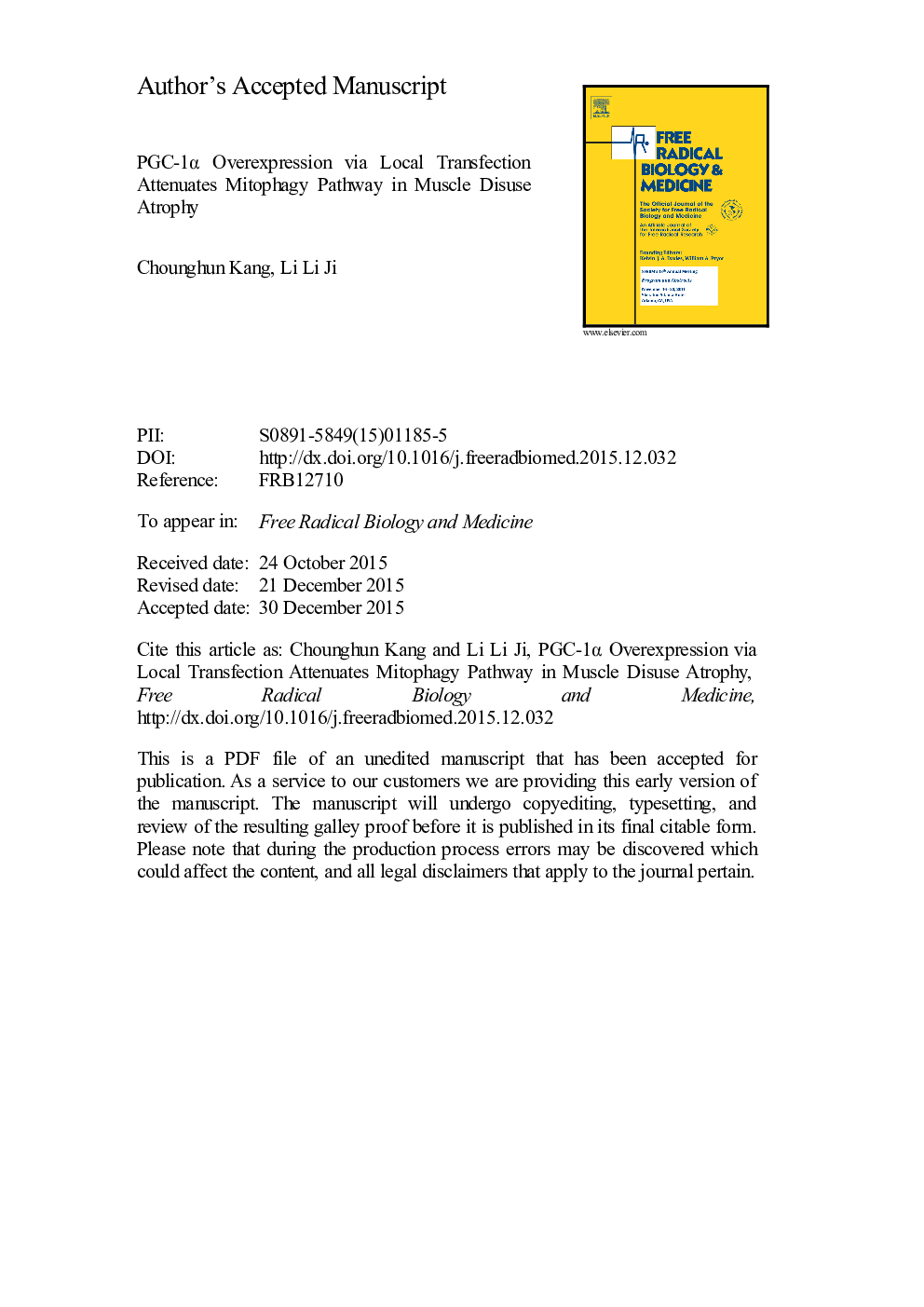| Article ID | Journal | Published Year | Pages | File Type |
|---|---|---|---|---|
| 8268028 | Free Radical Biology and Medicine | 2016 | 31 Pages |
Abstract
Loss of mitochondrial structural and functional integrity plays a critical role in the pathogenesis of muscle disuse atrophy. Peroxisome proliferator-activated receptor γ coactivator 1-α (PGC-1α) has been suggested to modulate autophagy-lysosome pathway (mitophagy) during muscle atrophy, but clear evidence is still lacking. In the current study, we tested the hypothesis that overexpression of PGC-1α via in vivo transfection would ameliorate mitophagy in mouse tibialis anterior muscle subjected to two weeks of immobilization (IM), followed by remobilization (RM). While mitochondrial biogenesis and antioxidant enzymes are decreased, all autophagic and mitophagic protein markers such as Beclin-1, Bnip3, PINK1, parkin, Mul1 and the LC3II/LC3I ratio were increased in IM-RM muscle together with activation of FoxO pathway. Overexpression of PGC-1α significantly increased mitochondrial DNA proliferation and oxidative enzyme activity, whereas it mitigated oxidative stress and mitochondrial ubiquination in IM-RM muscle. Protein contents of PINK1, parkin and Mul1 in mitochondria decreased by approximately 50% with PGC-1α treatment. Furthermore, PGC-1α overexpression suppressed FoxO1 and FoxO3 activation along with a decreased LC3II/LC3I ratio. Importantly, PGC-1α attenuated IM-RM-induced ubiquination and degradation of mitofusion protein Mfn2. Muscle apoptotic tendency, measured by Bax/Bcl2 ratio and caspase-3 activity, were elevated with IM-RM, but unaffected by PGC-1α. We conclude that overexpression of PGC-1α by in vivo transfection can inhibit activation of mitophagy pathway in the atrophying muscle caused by immobilization.
Keywords
BNIP3MUL1peroxisome proliferator-activated receptor gamma, coactivator 1 alphaBCL2/adenovirus E1B 19 kDa interacting protein 3MrOSMFN2SOD2PGC-1αLC3PINK14-HNE4-hydroxynonenalPTEN-induced putative kinase 1ImmobilizationOxidative stressforkhead Box OApoptosisSuperoxide dismutase 2Citrate synthaseMuscleFoxOMitophagymitofusin 2Mitochondriamicrotubule-associated protein 1A/1B-light chain 3mitochondrial reactive oxygen species
Related Topics
Life Sciences
Biochemistry, Genetics and Molecular Biology
Ageing
Authors
Chounghun Kang, Li Li Ji,
